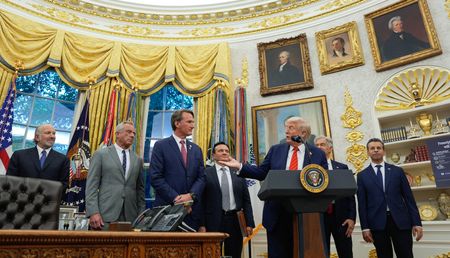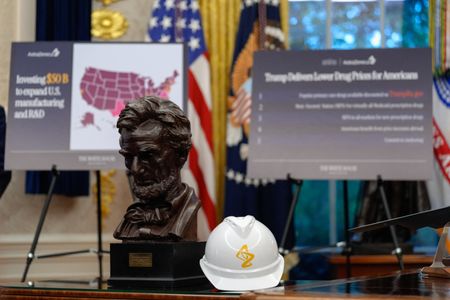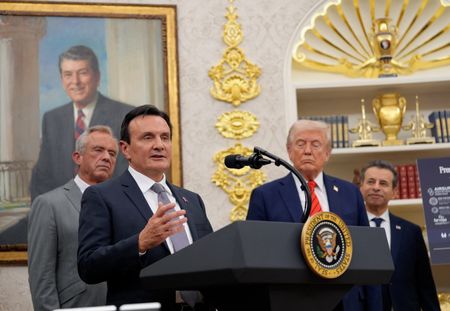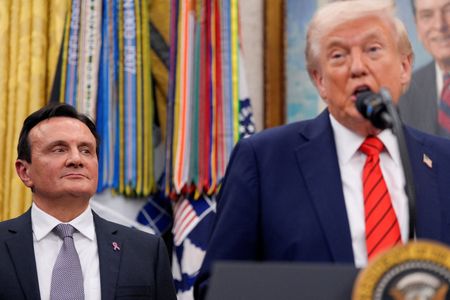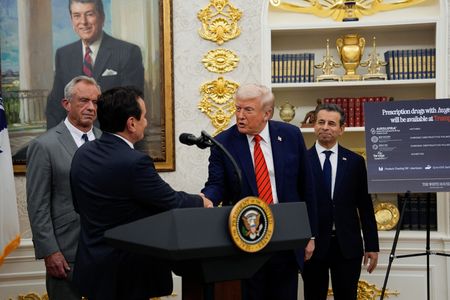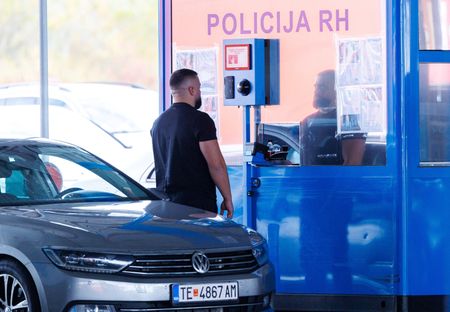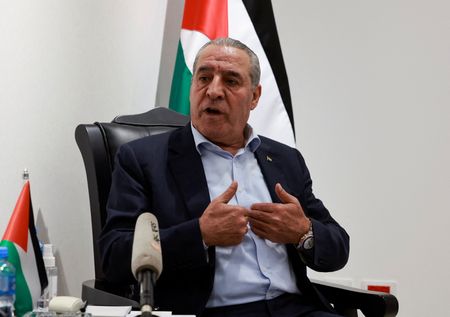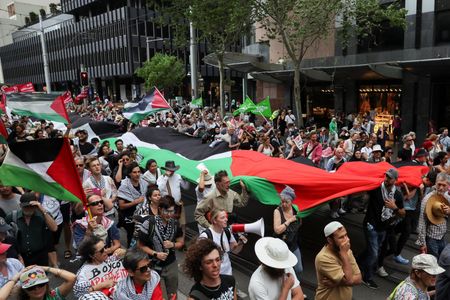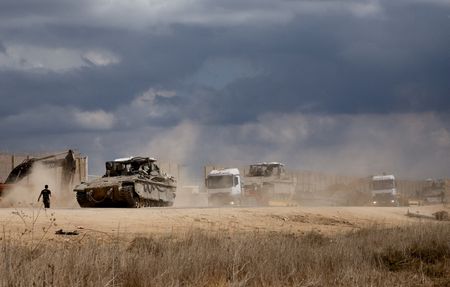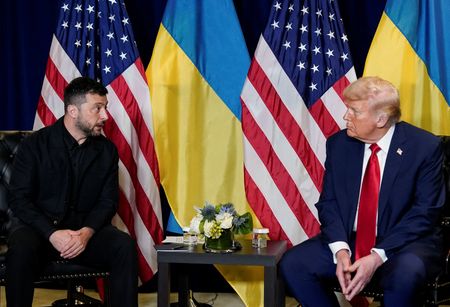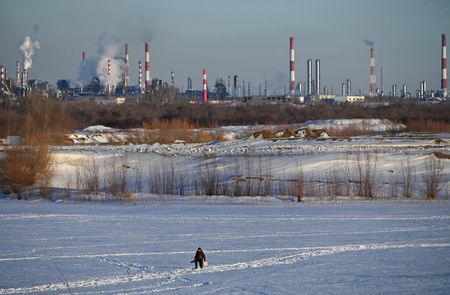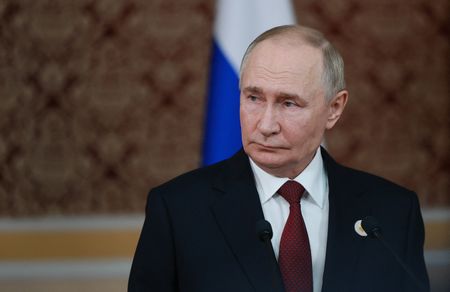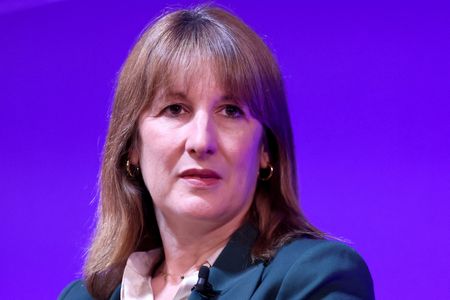By Maggie Fick
LONDON (Reuters) -AstraZeneca CEO Pascal Soriot looked relaxed standing in the Oval Office on Friday as U.S. President Donald Trump unveiled a medicine deal that will lower drug prices for millions of Americans.
The hard work had paid off, allowing Soriot to clinch the first agreement for a non-U.S. drugmaker and shield his Anglo-Swedish company from threatened steep tariffs on imports to the U.S. – the world’s largest pharmaceuticals market.
That moment at the White House was the culmination of public and private meetings between Soriot and Trump officials, stretching back to November last year when Trump won election, three sources close to the negotiations told Reuters. And it went down to the wire with a last-minute push from AstraZeneca to seal the agreement.
“You’ve kept me up at night and my team as well. But it’s been really worth it,” Soriot joked to Trump.
ASTRAZENECA CEO MET TRUMP AT ROYAL BANQUET
The agreement will likely bolster the 66-year-old French-born Australian’s reputation as something of a Trump whisperer, even as many CEOs globally grapple with the president’s whipsaw tariff changes.
Trump argues Americans pay far too much – often three times more, studies show – for prescription medicines than in other wealthy nations and set a September 29 deadline for drugmakers to cut prices, using threats of tariffs up to 100% as leverage.
Soriot’s charm offensive started the week after Trump won the U.S. election. On November 12, AstraZeneca announced a $3.5 billion plan to expand manufacturing and research in the United States.
Soriot, who arrived in the U.S. early last week, most recently met Trump at a September 18 royal banquet dinner at Windsor Castle in Britain, the first source said.
Over the summer he met with U.S. Secretary of Commerce Howard Lutnick at least three times in Britain and the United States, that source added.
All three sources asked not to be named as the talks were confidential.
Soriot also developed a close relationship with vocal Trump ally and Republican high-flier, Governor Glenn Youngkin of Virginia, all three sources said. That led to a rapidly-assembled deal for a $4.5 billion plant in the state, which took just over a month to go from initial talks to an agreement.
On Thursday, a day before the Oval Office signing, Soriot and Youngkin stood shoulder-to-shoulder, shovels in hand, to break ground at the site.
“Youngkin has a lot of ambition and his connections with the administration were clearly helpful,” a second source said. “The Virginia facility deal showed the two sides were on the same page.”
ASTRAZENECA: A ‘VERY AMERICAN COMPANY’
Following the agreement and a deal a week earlier by U.S. peer Pfizer that boosted global healthcare stocks, Wall Street now expects more companies to reach similar agreements with the Trump administration in the coming weeks.
Shore Capital analyst Sean Conroy said that Soriot, who publicly backed Trump on drug pricing and called AstraZeneca a “very American company”, secured a seat at the table in Washington with smart strategic announcements.
“That rhetoric has clearly resonated with the Trump administration and its agenda around Most Favored Nation drug pricing,” Conroy said, referring to the lowest price paid in other wealthy countries after fees and rebates.
SOME CONCESSIONS, BUT A WIN FOR ASTRAZENECA
Analysts had estimated that AstraZeneca was less exposed to U.S. tariffs than many other major drugmakers, having already established substantial manufacturing capacity in the United States.
But tougher regulation and more price pressure in the UK, where many drugmakers have criticised the government for not doing enough to support the sector, gave AstraZeneca a strong business argument for the U.S. deal.
Britain accounts for a small percentage of the company’s revenues but is where it is headquartered and primarily listed. AstraZeneca is the largest listed firm on London’s FTSE 100 Index.
In contrast to Britain, U.S. officials are in the midst of an aggressive push to spur investment from firms like AstraZeneca and put in ample energy and effort to assist them, the first source said.
In July, AstraZeneca announced a sprawling $50 billion investment plan for the U.S. market and in late September said it would do a full U.S. listing of its shares alongside its current London listing.
By the time Pfizer signed its deal on September 30, AstraZeneca was already nearing its own finalised agreement, the three sources said.
Soriot headed to the U.S. early last week even as the last details were being ironed out. Each day a deal looked close but didn’t arrive.
The Virginia plant agreement solidified goodwill between the company and the Trump administration, which ultimately helped push the deal over the line, the third source said.
In the end, while AstraZeneca made concessions on some drug prices for Medicaid and pledged to produce more medicines locally, its U.S. arrangement marks a win for the company.
It gives more clarity, analysts say, without significantly denting expected revenues, which AstraZeneca is aggressively forecasting at $80 billion by 2030, with half of that coming from increased sales in the United States.
“Friday’s deal is the last piece in the puzzle,” the third source added.
(Reporting by Maggie Fick; Additional reporting by Sabrina Valle in New York; Editing by Adam Jourdan and Joe Bavier)

